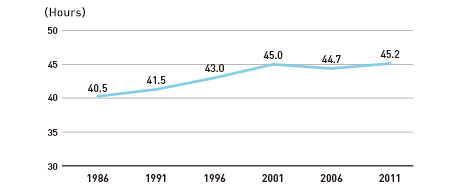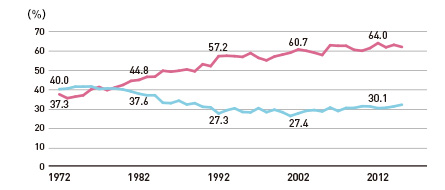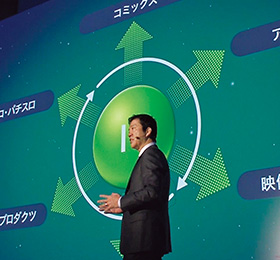Business strategy of Fields

Fields’ Vision of “the Greatest Leisure”
Our free time is spent reading books, watching movies, surfing the Internet, enjoying a cup of tea at a cafe, or playing pachinko. The time devoted to these activities is leisure. Since Fields was founded, we have continued to engage in a wholehearted search for ways of making this time the greatest leisure possible.
As a child, I suspect, everyone has had the experience of becoming utterly lost in their play. The memories of this time spent completely absorbed in one’s pursuits, forgetting time itself, is irreplaceable. Fields believes “the greatest leisure” is just that, the childhood experience of becoming lost in one’s play, time spent excited and enthralled in an enjoyable experience. As people are increasingly having access to greater amounts of leisure time, the demand for more-rewarding lifestyles is growing. Fields is committed to responding to this demand, and will continue endeavoring to provide “The Greatest Leisure for All People.”
Total Weekly Leisure Time

Source: 2011 Survey on Time Use and Leisure Activities,
Ministry of Internal Affairs and Communications
Society’s Shift from Material Goods

Source: FY2015 Public Opinion Survey Concerning People’s Lifestyles,
Cabinet Office
Deliverance of “the Greatest Leisure” to Customers
Fields is always seeking out means of delivering the greatest leisure to its customers, an unending quest that has involved countless challenges. One of our major triumphs has been the Evangelion pachinko machine.
In 2004, Fields unveiled its first Evangelion pachinko machine based on the Neon Genesis Evangelion TV anime series originally aired in Japan in 1995. In the period of more than a decade that followed, each new incarnation of this machine has proven immensely popular, making this series of machines a cornerstone of our lineup. The combined sales of Evangelion pachinko and pachislot machines has exceeded 2 million units to date, and created a market with a scale of roughly ¥700 billion.
Playing pachinko is a popular form of leisure in and of itself, and its fans are numerous. However, the Evangelion pachinko machine has proven that this experience becomes even more enjoyable when the unique world of Evangelion is brought into the equation. One of the more notable game functions included in these machines is the “berserk mode.” Some pachinko machines feature a “sudden probability variation*” function, which serves as a big jackpot without won pachinko balls. As this function acts as a big jackpot that does not let the player win balls, it was, needless to say, not particularly popular, and few machines announced at the time contained this function. However, when this was merged with elements of the Evangelion anime, namely the berserk state of the central robot of the series, this previously unpopular function was reborn into a new game function that offers players a fresh new sense of excitement and anticipation. In this manner, the addition of the characters and world of Evangelion gave birth to a new form of entertainment value that transcends the traditional win or lose nature of pachinko.
This experience made us realize something incredibly important: introducing IP into existing forms of recreation and leisure can create added joy, and thereby represent a viable business model.
* After a big jackpot, pachinko machines will enter into a stance of probability variation during which the probability of subsequent big jackpots will change (subsequent jackpots will be made more likely). Generally, these probability variation states occur after the won balls are dispensed from a big jackpot. Conversely, sudden probability variation refers to probability variation states that occur without warning, rather than after the dispensing of won balls from a big jackpot.


The “berserk mode” function merges the scenes from the TV anime series in which Evangelion goes “berserk,” becoming uncontrollable, with the sudden probability variation function of pachinko machines. The Evangelion pachinko machine was revolutionary due to its inclusion of this mode, and this machine has been a large influence in shaping the development of later-released pachinko machines.
Evangelion

Neon Genesis Evangelion is a Japanese TV anime series directed by film director Hideaki Anno. Originally aired over the period from 1995 to 1996, this series garnered incredibly high levels of popularity.
Set in Japan in the near future, the story follows 14-year-old Shinji Ikari as he pilots the synthetic lifeform known as Evangelion to battle a mysterious foe called the Angels. This work won the hearts of countless young viewers. Major draws included its cryptic story that did not clearly explain the reason behind its struggles and was filled with mystery as well as its unique characters, such as Rei Ayanami and Asuka Langley Sohryu, both of whom are the same age as Shinji Ikari. Moreover, this series was brimming with unforgettable lines, distinct color usage, and memorable scene direction.
The Evangelion pachinko machine released in 2004 also proved to be a massive hit, raising the series’ recognition among demographics that do not normally watch anime.
With the release of the first of the Rebuild of Evangelion series of movies in 2007, Evangelion’s fan base grew even wider.
In 2012, the latest installment of this movie series—Evangelion: 3.0 You Can (Not) Redo—hit theaters. Even before its release, more than 150 companies were engaged in movie tie-up and collaboration campaigns. As of 2012, the market for Evangelion-related products was estimated to have a scale of more than ¥150.0 billion, and this series continues to boast massive popularity in Japan as well as overseas.
Diverse Range of Fields Engaged in Evangelion Tie-Up and Collaboration Campaigns

Strategic Creation and Cultivation of IP
In Japan, the younger generation has recently been thought to be drifting away from television. It was in 1953 when television broadcasts first began in Japan, and in the years that followed it was common for children to spend each week waiting in anticipation for the next episodes of their favorite weekly TV anime and hero shows. However, this is no longer the case, as over the 20 years since 1995—the so-called inaugural year of the Internet in Japan—the very nature of media has undergone a substantial transformation. The first phase of this was the spread of the Internet, after which we witnessed the development of the telecommunications infrastructure supporting the Internet and then the advent of mobile phone ubiquity. Soon, the times gave rise to smartphones and tablets. Today, people are able to enjoy media that is always close at hand, allowing them to consume media content that match their preferences whenever and however much they want. In this current era, a new approach is required to create IP, such as characters and stories, with the potential of becoming social phenomena that entertain countless fans, as it was in the days when television was the leading entertainment venue. This approach entails deploying IP across various entertainment mediums, including comics, television, videos games, toys and others, rather than limiting IP to specific forms of media. It is by creating synergistic relations between an IP’s incarnations in different media forms that we are able to cultivate IP that will eventually become a social phenomenon. In other words, our business should not be one of creating IPs targeting a certain form of media. On the contrary, we believe it is important to first invent an IP, and then deploy it across various media forms through a cross-media rollout.
Based on our experience with the Evangelion pachinko machine, we realized that people were more interested in the joy of becoming engaged in the story and world of an IP than they were in indulging in a specific form of media. It was this realization that led us to place IP at the center of our operations. Increasing the popularity of an IP is not a matter of order, or determining from which media an IP will start. Rather, Fields believes that it is more important to simultaneously extend an IP to various forms of entertainment media.
The leading form of media changes with the times. Accordingly, the spotlight in the entertainment industry has shifted from company to company as the leading form of media has changed from newspapers to radio and then to television, mobile phones, and most recently smartphones. For this reason, Fields is not devoting its efforts to developing IP matched to a specific media form. Instead, we have placed IP at the center of our business, and are focused on cultivating IP by introducing them into various media forms and on constructing systems for facilitating these efforts.

Fields’ Business Model


Japan’s entertainment industry is home to numerous publishers, television stations, toymakers, video game developers, and other companies in all form of media with impressive track records. Fields, however, is neither a publisher nor a television station or video game developer. We do not compete with these prominent media companies, and are not impacted as the operating environment changes to become beneficial or unfavorable for specific media forms. Rather, Fields partners with leading companies possessing superior know-how and insight, cultivating IP together with them and building lasting win–win relationships.
For example, we were able to rekindle the popularity of the aforementioned Evangelion several years after the TV anime series’ broadcast run by developing pachinko machines. Eventually, this gave rise to new stories and the creation of new movies and animation contents, further expanding the series’ fan base and leading to a number of collaboration campaigns with companies from various industries. The popularity of Evangelion today is a clear example of the successful cultivation of an IP through synergistic relationships between its incarnations in various media forms.
Another example of an IP we are cultivating is the Japanese idol group AKB48. As opposed to producing our own idol group to compete with AKB48, we are instead borrowing the IP to further expand its popularity together with its owner through cross-media rollouts, specifically the development of social games and shops. In this manner, we are collaborating with partners in cultivating IP and avoiding becoming dependent on certain media forms.
It is through this business model of collaborating with prominent companies in the entertainment industry, rather than competing with them, to jointly cultivate borrowed IP that Fields is increasing its profits. In similar fashion, we are also working together with partners in various sectors of the entertainment industry to cultivate IPs created by Fields with the aim of growing them into entities as expansive as Evangelion and AKB48.

AKB48
AKB48 is a female idol group in Japan. Founded in 2005 based on the concept of “idols you can meet,” AKB48 is based out of its own theater located in the Akihabara district of Tokyo and is growing under the guidance of general producer Yasushi Akimoto. After the debut of sister group SKE48 (Nagoya City, Aichi Prefecture) in 2008, a number of AKB48 sister groups were established in Japan and even overseas, including NMB48 (Osaka City, Osaka Prefecture), HKT48 (Fukuoka City, Fukuoka Prefecture), JKT48 (Jakarta, Indonesia), and SNH48 (Shanghai, China). This collective AKB48 Group continues to entertain its fans with numerous unique events, including the annual General Election and Janken (rock–paper–scissors) Tournament, and the group’s immense popularity has made it one of Japan’s leading musical artists. The AKB48 single released in August 2015 extended the group’s streak of million-selling singles to 22, making for the longest streak in the history of the Japanese music industry.